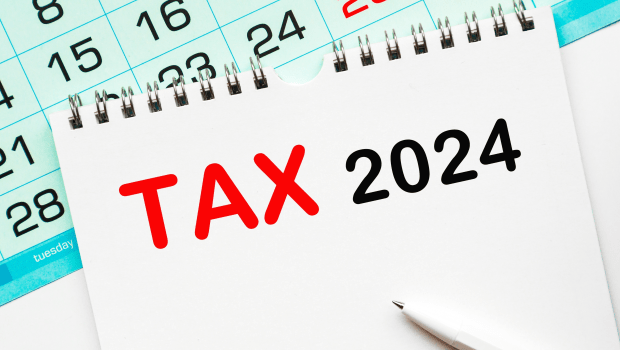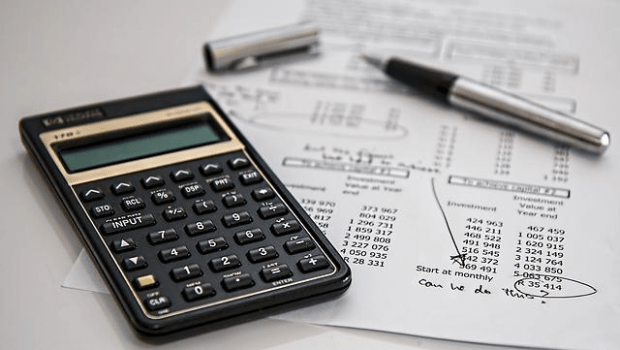-

-
Published on
28/06/2024
by Mary Tamvakologos
Tax Time Tips to Maximise Your Small Business Savings
Tax time. Two words that can make any small business owner break into a cold sweat. But with the right strategies and preparation, the end of the financial year doesn't have to be a source of stress. Instead, it can be an opportunity to optimise your financial health, minimise your tax liability, and set your business up for future success.
In this blog post, we'll walk you through some essential tax time tips tailored specifically for small business owners. From understanding tax deductions to keeping impeccable records, these strategies will help you sail through tax season with confidence and ease.
Understanding the End of Financial Year
The end of the financial year (EOFY) is a crucial time for small business owners. It's the period when you need to finalise your financial records, prepare your tax return, and ensure that your business complies with all tax obligations.
Why the EOFY Matters
The EOFY isn't just about closing your books; it's also about evaluating your business's financial health. This period provides an excellent opportunity to assess your profitability, cash flow, and overall performance. By understanding where your business stands financially, you can make informed decisions about future investments, cost-cutting measures, and growth strategies.
Setting Your Business Up for Success
Properly managing your finances at the EOFY is essential for long-term success. By taking proactive steps such as organising your financial records, reviewing your expenses, and planning for upcoming tax obligations, you can ensure that your business remains financially stable and resilient in the face of challenges.
Common Pitfalls to Avoid
Many small business owners make common mistakes during the EOFY that can lead to unnecessary stress and financial setbacks. These include procrastinating on tax preparation, neglecting to track expenses, and failing to seek professional advice. Avoiding these pitfalls is crucial to ensuring a smooth and successful tax season.
Organise Your Financial Records
One of the most important steps in preparing for tax time is organising your financial records. Keeping accurate and up-to-date records throughout the year can save you a lot of time and headaches when it comes to filing your tax return.
Importance of Accurate Record-Keeping
Accurate record-keeping is essential for several reasons. It helps you track your business's financial performance, make informed decisions, and comply with tax regulations. Additionally, having well-organised records can make the audit process smoother if your business is ever subject to one.
What to Include in Your Records
Your financial records should include income statements, expense receipts, bank statements, payroll records, and any other documents that reflect your business's financial transactions. Make sure to keep both physical and digital copies of these records for easy access and backup.
Tools for Efficient Record-Keeping
There are several tools and software available that can help you streamline your record-keeping process. Accounting software such as QuickBooks, Xero, and MYOB can automate many aspects of financial management, making it easier to keep track of your income and expenses. Additionally, using cloud storage solutions ensures that your records are safe and accessible from anywhere.
Maximise Your Tax Deductions
One of the best ways to reduce your tax liability is by maximising your tax deductions. By identifying and claiming all eligible deductions, you can significantly lower the amount of tax you owe.
Common Tax Deductions for Small Businesses
Small business owners can claim a variety of tax deductions, including expenses related to office supplies, utilities, rent, and employee wages. Other common deductions include business travel expenses, vehicle expenses, and marketing costs. Make sure to keep detailed records and receipts for all deductible expenses to support your claims.
Home Office Deductions
If you run your business from home, you may be eligible for home office deductions. These can include a portion of your mortgage or rent, utilities, internet, and phone expenses. To qualify, you must have a dedicated area in your home used exclusively for business purposes.
Depreciation Deductions
Depreciation allows you to deduct the cost of business assets over their useful life. This can include items such as office equipment, machinery, and vehicles. Make sure to keep accurate records of the purchase dates and costs of these assets to calculate your depreciation deductions correctly.
Stay On Top of Estimated Taxes
Small business owners are typically required to pay estimated taxes throughout the year. These payments are made quarterly and are based on your expected income and tax liability.
Why Paying Estimated Taxes is Crucial
Paying estimated taxes is essential to avoid penalties and interest charges from the ATO. Failing to make these payments on time can result in significant financial penalties, which can add unnecessary stress to your business's finances.
How to Calculate Estimated Taxes
To calculate your estimated taxes, you'll need to estimate your total income, deductions, and tax credits for the year. It's also a good idea to consult with a tax professional to ensure that your estimates are accurate.
Tips for Managing Estimated Tax Payments
Set reminders for quarterly tax payment deadlines and consider setting aside a portion of your income each month to cover these payments. Using accounting software can also help you keep track of your estimated tax obligations and ensure that you make timely payments.
Prepare for an Audit
While no one wants to think about the possibility of an audit, it's essential to be prepared in case your business is selected for one. Proper preparation can help you avoid stress and ensure that the audit process goes smoothly.
Understanding the Audit Process
An audit is an examination of your business's financial records and tax returns to ensure accuracy and compliance with tax laws. The ATO may select your business for an audit randomly or due to discrepancies in your tax filings.
How to Reduce Your Audit Risk
While there's no way to guarantee that you won't be audited, there are steps you can take to reduce your audit risk. These include maintaining accurate records, filing your tax returns on time, and avoiding common red flags such as excessive deductions or inconsistent income reporting.
What to Do if You're Audited
If your business is selected for an audit, it's essential to cooperate fully with the ATO and provide all requested documentation. Consider seeking the assistance of a tax professional to help you navigate the audit process and ensure that your records are in order.
Seek Professional Help
Navigating the complexities of tax time can be challenging, especially for small business owners. Seeking the assistance of a tax professional can help ensure that you comply with tax regulations and maximise your savings.
Benefits of Hiring a Tax Professional
A tax professional can provide valuable insights and advice on tax planning, deductions, and credits. They can also help you prepare and file your tax return accurately and on time, reducing the risk of errors and penalties.
How to Choose the Right Tax Professional
When selecting a tax professional, look for someone with experience working with small businesses in your industry. Check their credentials and ask for references to ensure that they have a proven track record of success.
Making the Most of Your Tax Professional's Expertise
To get the most out of your tax professional's services, be prepared to provide detailed information about your business's finances. Keep open lines of communication and ask questions to ensure that you understand the tax strategies and recommendations they provide.
Plan for the Future
Tax time isn't just about addressing your current tax obligations; it's also an opportunity to plan for the future. By setting financial goals and implementing tax strategies, you can position your business for long-term success.
Setting Financial Goals
Start by setting clear and achievable financial goals for your business. These goals can include increasing revenue, reducing expenses, or expanding your operations. Having specific goals in place can help guide your tax planning and financial decision-making.
Implementing Tax Strategies
Work with your tax professional to develop and implement tax strategies that align with your financial goals. These strategies can include deferring income, accelerating deductions, and taking advantage of tax credits and incentives.
Monitoring Your Progress
Regularly review your financial performance and tax strategies to ensure that you're on track to meet your goals. Adjust your plans as needed to address changes in your business or the tax landscape.
Conclusion
Tax time doesn't have to be a daunting experience for small business owners. By understanding the end of the financial year, organising your financial records, maximising deductions, staying on top of estimated taxes, leveraging tax credits, preparing for an audit, seeking professional help, and planning for the future, you can confidently navigate tax season and set your business up for success.
Remember, proactive tax planning and preparation are key to minimising your tax liability and maximising your savings. If you need additional support or guidance, don't hesitate to reach out to a tax professional who can help you achieve your financial goals.
Related articles



